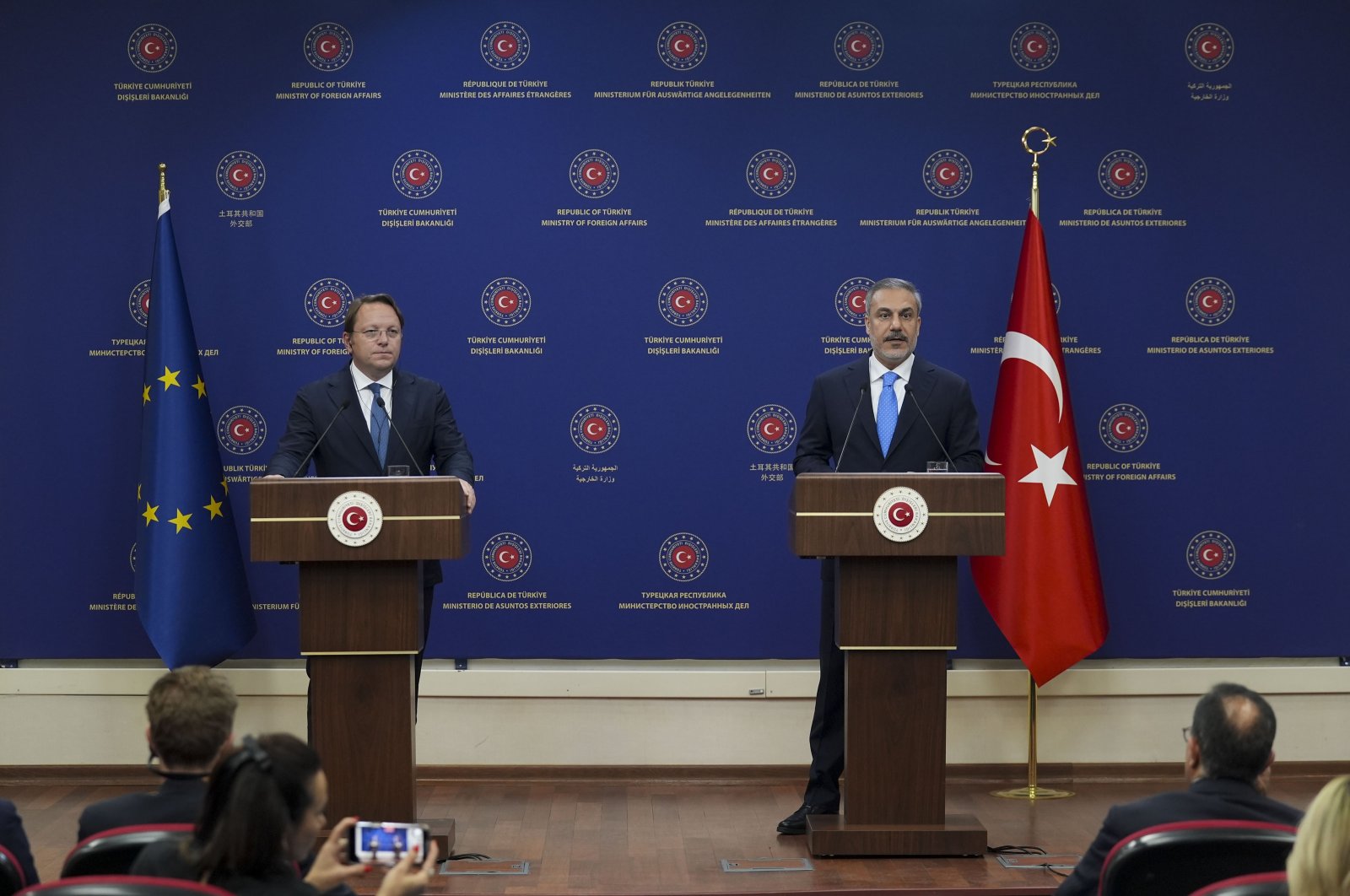
Speaking at a news conference with the EU's enlargement chief, Foreign Minister Hakan Fidan said Thursday that his country would not give up its historic journey and goal of being 'a central country,' even if the bloc does not prefer it
European Commissioner for Neighborhood and Enlargement Oliver Varhelyi was in the capital, Ankara, on Thursday. After meetings with Vice President Cevdet Yılmaz and Trade Minister Ömer Bolat, he held talks with Foreign Minister Hakan Fidan and held a joint news conference. Fidan highlighted Türkiye’s commitment to relations with the EU at the news conference.
He said Türkiye favored maintaining relations with the EU and never abandoned their affairs with the bloc. However, he was critical of the actions of "certain countries” opposing their accession bid.
"We will not abandon our historic journey and strategy of becoming a central country (in Europe) just because they do not opt for (our accession),” Fidan stated.
Accession talks have stalled in recent years over a number of disagreements and political roadblocks. Türkiye suggests it has fulfilled most of the criteria for membership. Though the accession process stalled, Türkiye has remained a key economic and defense partner for the 27-member bloc.
Since the start of summer, Ankara and the bloc have been working to rekindle ties, which, for many years, have operated not toward mutual trust and strategic goals but only out of necessity.
Türkiye has the longest history with the union and the most prolonged accession process, which only officially started in 2005 despite the first agreement being signed with the EU’s predecessor, the European Economic Community (EEC), in 1964. Since then, the process has been essentially frozen due to political roadblocks by some EU members. After the presidential and parliamentary elections concluded in May, Brussels shifted its rhetoric from "the importance of cooperation with Türkiye” to "continuing relations on a strategic and forward-looking basis.”
Fidan said Türkiye was an actor that would empower any alliance it joined with its dynamic economy, strong infrastructure and political stability.
"Historically, we always favored the European Union and will not hesitate to move forward our economic and political cooperation with EU institutions,” he said. Fidan, however, pointed out the "identity politics” pursued by some members of the bloc for their own "cheap domestic policy goals consisting of anti-Turkish, anti-Islamic discourse along with the migrant card,” he said, referring to the issue of irregular migration that also fuels far-right, xenophobic rhetoric in EU. "These help them win votes but strategically, push EU to a problematic area,” he said.
The minister said the EU should think about what its mistake was, noting that it devolved into a structure relying on assistance from the "other side of the Atlantic” for survival in a time of need for larger alliances and solidarity.
Fidan said Türkiye attached importance to the issue of visa liberalization with the EU. He said Türkiye and the EU agreed upon an update on the customs union and said they hoped to move it forward in a practical way.
He also highlighted the issue of visa delays for Turkish citizens, who were engaged in talks with their European counterparts about it.
For his part, Varhelyi said the two sides needed to advance their economic relations and this would be possible with "easier” travel for everyone, from businesspeople to students. He noted the 200 billion euro ($216.67 billion) trade volume between the bloc and Türkiye last year, emphasizing that Türkiye was the fifth largest trade partner of the EU. "We need to expand it,” he said, noting that they discussed boosting investments.
Varhelyi stated that both sides needed each other and that they would soon launch high-level dialogue talks to schedule more regular meetings to advance the relations.
